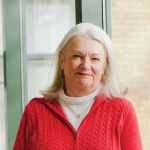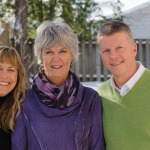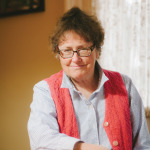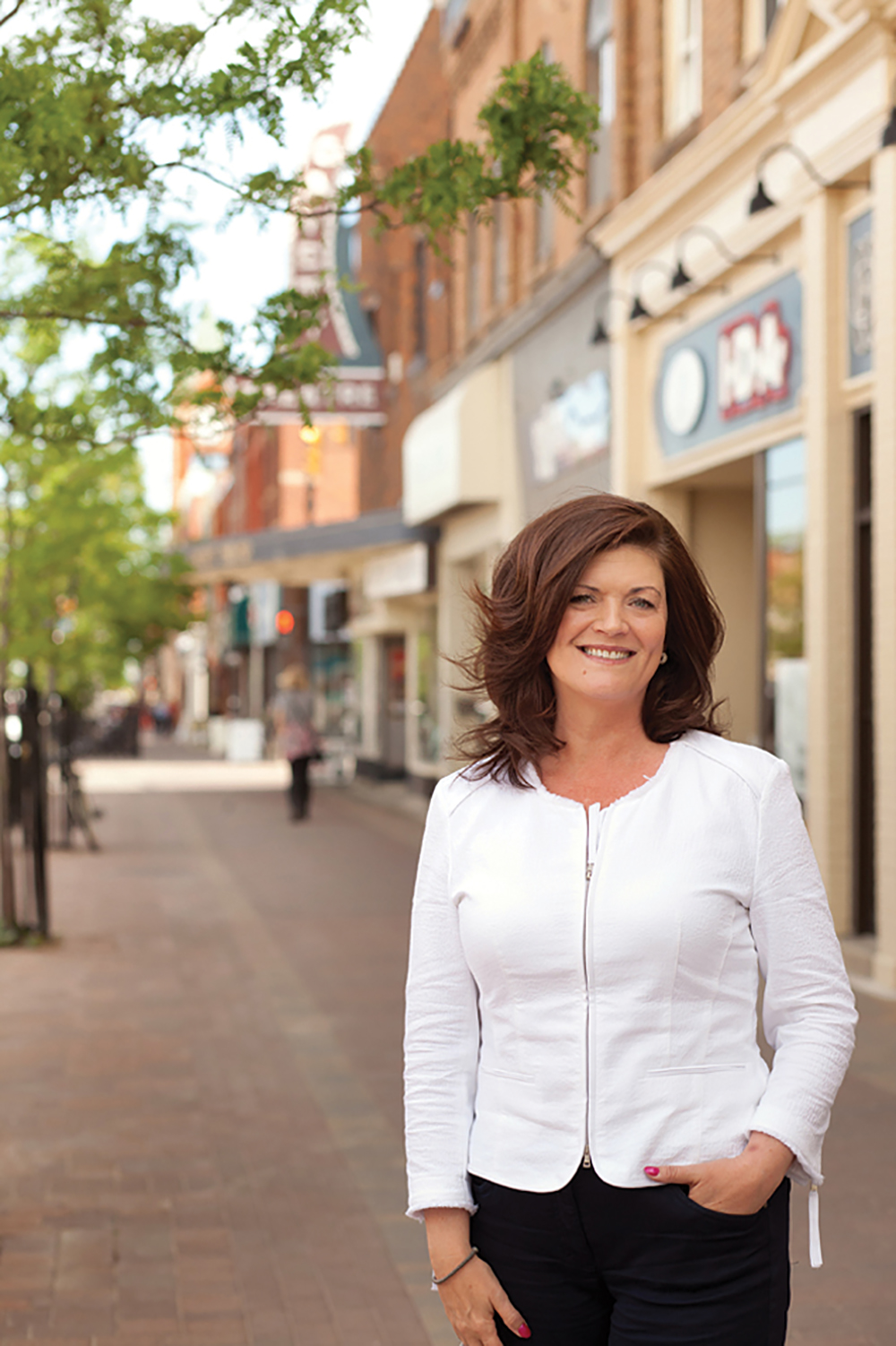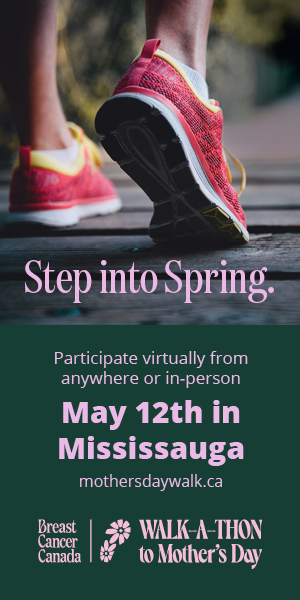Mental health is just as important as physical health, and there are plenty of services and practitioners in Southern Georgian Bay that can help
story by Cecily Ross ❧ photography by Jessica Crandlemire

When Jenny and Michael Rankin* came to the realization that their five-year-old daughter Megan’s daily meltdowns were unsettling the whole family, they decided to get help. Jenny, who works for a community services agency, and Michael, an elementary school teacher, were at a loss as to how to manage their bright but anxious little girl. The entire household was on edge, including eight-year-old Henry who, when he wasn’t fighting with his little sister, retreated further and further into his shell. Even Murphy, their standard poodle, seemed stressed out.
*All patient names have been changed to protect privacy.
“Basically,” says Michael, “we had exhausted most of our strategies in dealing with our daughter.” Both Jenny and Michael were feeling insecure about their abilities as parents and worse yet, wondered if there was something seriously wrong with the little demon they loved so much. The conflict in the household was having an impact on their marriage as well.
When they talked to their family physician about the problems, the Rankins learned that because their doctor was one of the 40 members of the Georgian Bay Family Health Team (GBFHT), they had access to a full range of mental health services available at no cost. OHIP would pay for everything.
The doctor referred Megan to Gillian Harris-Sopinka, a youth-family counsellor with GBFHT, and after completing an assessment, Harris-Sopinka began meeting with Megan alone, following up with her parents every few weeks.
“Often mums and dads come to us saying their children are troublesome or defiant,” says Harris-Sopinka. “The kids don’t have the experience to understand why they feel the way they do. The parents only see bad behaviour; I try to help everyone understand why the child is behaving the way they are.”
Little Megan Rankin saw her counsellor for about 10 months. “It was a very positive experience,” says Jenny. “Gillian gave us some new tools that really worked.” And most important, the couple was reassured about their ability as parents and the mental health of their child.
“We came to see there was nothing wrong with Megan. It was more an issue of will and personality,” says Michael.
During that time, Harris-Sopinka also taught Megan’s older brother Henry some techniques (meditation and a squeeze ball) to help him manage his anxiety. “He was pretty stressed and holding a lot in,” says his mother.
Soon after, Jenny and Michael, who have been married 13 years, began seeing GBFHT couples counsellor, Theresa Machin, who uses a short-term (10 to 15 sessions) therapy method known as EFT (emotionally focused therapy) developed by Sue Johnson, an Ottawa-based researcher and author of the book Hold Me Tight: Seven Conversations for a Lifetime of Love.
“[EFT] is a lot of work, but we are no longer caught up in a destructive spiral,” says Michael, adding, “It worked very well for us. I tell all my male friends about it.”
Both Jenny and Michael want their story told to help lessen the stigma around “getting help when you need it.” The Rankins are clearly a poster family for the many mental health services available to residents of the region, and they would like to help spread the word. With five full-time adult counsellors and the equivalent of three youth counsellors (including two job-sharing positions), the Georgian Bay mental health team last year saw more than 9,000 referrals from family physicians in Collingwood, Wasaga Beach, Creemore, Meaford and Thornbury, making our region one of the best-served in the province.
“We have very good mental health services in this area,” says Thornbury-based therapist Donnalee Hobson, who runs a small private practice as well as being employed full-time by GBFHT where she sees individual patients and runs several different group therapies (see sidebar). “And it’s free if your doctor is part of the family health team,” she adds.
“We have the best group of youth therapists I have ever seen, and I’ve seen a lot. People here are very lucky.”
That’s the good news. The not-so-good news, according to GBFHT’s mental health team leader John Lush, is that he and his counsellors are set up to deal primarily with mild to moderate mental illnesses. “We don’t deal with major mental illnesses like severe bipolar, schizophrenia and serious psychoses,” he says. Those issues are referred to Community Mental Health operating out of the Collingwood G&M Hospital. And with just one psychiatrist on staff, wait times can be as long as 12 months, Lush says. Individuals who attend the hospital Emergency ward experiencing a psychological crisis (suicide attempts, mental breakdowns, homelessness issues) are usually referred to Wendat, a psychiatric rehabilitation program based in Midland that provides crisis intervention.
But the reality is that some of the serious cases are referred to Lush and his team. “It’s hard to turn people down,” he says. “We do what we can to stabilize them.”
Another issue, according to Lush, is a chronic shortage of provincial funding, which means that wait times are now as long as two months for adults and three to four weeks for children. For this reason the team focuses as much as possible on short-term therapies.
“We try to wrap up cases in about six sessions,” says Harris-Sopinka.
At least, that’s the goal. But, as Lush points out, “People bring decades of issues in with them and sometimes it’s hard to deal with that in six to 10 sessions. We try to give people coping mechanisms so they can manage their issues in the future. But we carry a handful of people for years.”
Anxiety and depression are the most common manifestations of mental illness the team deals with. GBFHT also offers counselling for people going through divorce, suffering the loss of a loved one, adjusting to an empty nest or retirement. There is also help available for anger management, low self-esteem, loneliness, weight problems, addiction issues, phobias, obsessive compulsive disorders, insomnia and bullying, to name only a few.
“We see people from across the board,” says Lush, “from the very affluent to the severely marginalized.”
When Anna Peterson’s* husband Bob died of heart failure eight years ago, the retired prison cook was overwhelmed by her feelings of loss.
“I couldn’t get used to the emptiness of it all,” she says. “Not that our marriage was perfect, but we always talked. There was work and the children. I didn’t have time to think. Until everything was gone. The kids grown up, and then no husband. Just like that. I felt so cold.”
Anna began doing what she describes as “crazy things.” She sold her house and her car, lived temporarily with her sister and then moved from Toronto to Wasaga Beach. “That’s when I started running. I couldn’t sit still. My daughter said I looked like someone who wasn’t there. A zombie. I was running but I wasn’t getting anywhere.”
Anna’s sister and daughter urged her to get help, and her family doctor referred her to GBFHT’s mental health services, where she began seeing Theresa Machin.
“Grief,” explains Machin, “is not really an illness, but it’s hard to manage the intense emotions of grief. You wake up in the morning thinking, ‘I’m feeling better today.’ Then there’s some cue or a memory in the afternoon, and it washes over you like a tidal wave.”
With Machin’s help Anna came to understand her behaviour and learned to express and accept the grief she was feeling at the loss of her husband.
“It can be difficult to express grief,” says Machin, “because other people are afraid of it. It’s happening to you in a very private way, and yet it’s a public event.”
Given the wide range of GBFHT’s services, one might wonder why anyone would seek out private therapy, which can cost from $80 to $100 per hour. But therapists such as Machin, Lush and Harris-Sopinka acknowledge that not all mental health issues can be resolved in a matter of weeks, and that some patients might prefer the privacy that private practices afford. “Not everyone wants to run into their friends or co-workers in the waiting room,” says Harris-Sopinka.
Jody Bowle-Evans, a physician-therapist with a private practice in Creemore, specializes in treating dissociative states (PTSD, multiple personality disorder and borderline personality disorder) resulting from childhood trauma, usually sexual or physical abuse.
“I have patients who say they told everyone [about the abuse] but no one stopped it,” she says. “You don’t recover easily. You learn to avoid emotions. I have to teach them to feel again.”
Sometimes this can take years, and many of Bowle-Evans’s patients have been with her a long time. Although her services are also paid by OHIP because she is an MD, what she does is not the same as the counselling provided through the GBFHT. “My lens is different than theirs,” she says.
Lucy Marlin runs a private counselling service in Meaford that specializes in retirement transition and finding meaning. Retirement, she says, is often a time of great self-examination.
“People look forward to retirement. They have all these expectations and hopes and then they get there and it’s not what they expected,” says Marlin, whose practice is called Live in Light Counselling Services. “They need a redefinition of who they are. They need to find new meaning in their lives.”
Difficulties adjusting to retired life can manifest themselves in depression, anxiety, marital strife, and alcohol and substance abuse. Some people deliberately isolate themselves as a way of coping.
“Redefining who you are is crucial,” says Marlin, “but it’s difficult.”
Marlin, who also does telephone and online counselling (through a secure server), says there is a real need for awareness of the services that are available in this area. “I always hope people can reach out for help. They need to know that it’s not just their struggle; that there are many others going through what they are going through. And that there is help out there.”
Anna Peterson knows this well. This year when the sudden death of a member of her church, a man of 51 whom she barely knew, triggered powerful emotions that confused and overwhelmed her, she once again sought help from Theresa Machin at GBFHT.
“I couldn’t stop crying,” says Peterson, whose son, also 51, is alive but is unemployed and living alone in an apartment in Toronto struggling with mental health issues of his own. “My son just sits there wasting his life. I always thought that one day he’d sort himself out. He is my oldest. You have such big dreams for them.” Machin helped Peterson understand that her tears were grief; grief at the loss of the son she had always hoped for.
“I walked into her office,” Peterson recalls of her first session with Machin, “and she was bubbling with insights. She made me see that I had to let it go, that there is no sense in agonizing over something I cannot change.”
Like Peterson, Jenny and Michael Rankin describe their experience with counselling as “life changing.” It has become a tool they continue to use. Jenny recently signed up for a four-week introductory Mindfulness Meditation program with Donnalee Hobson at GBFHT (see sidebar), and this past summer the family returned to Harris-Sopinka for a few “refresher sessions.”
Harris-Sopinka says early intervention is crucial for children like Megan. She firmly believes that the kind of work she and the other youth counsellors are doing will mean fewer depressed, anxious and troubled adults in the future.
“With early intervention,” she says, “people have much less chance of going into adulthood trying to hide their problems.”
As for Anna Peterson, today she is so busy with her work at the church and her many friendships that some days she falls asleep as soon as her head hits the pillow. She thinks of herself as a happy, positive person.
“But, I can’t stress enough, when you feel negative like I did, get help” she says, her green eyes bright and clear. “You can have all kinds of friends, but sometimes you need another kind of support, someone you can pour out your heart to.” ❧
For more information on mental health services in Southern Georgian Bay, go to www.gbfht.ca/Our_Health_Team/our_programs and click on “Mental Health”. To find a private counsellor or therapist near you, go to www.therapists.psychologytoday.com/rms/ and enter your postal code.






